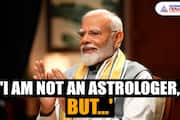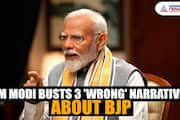Doklam – India wins the first round

The surprise announcement of the mutual pull back of forces by India and China - after more than two months of a tense armed standoff on the Doklam plateau is a diplomatic win for India.
China’s belligerent rhetoric proved counterproductive when pitted against India’s determined diplomatic stance that was backed by a well entranced military posture.
India was apparently willing to forego a visit by PM Modi to the BRIC’s summit in China in the face of the continued standoff. China did not make the concession only to make BRIC’s summit a success, though that was a major factor. It was after hard-nosed assessment of Indian defensive capability in the sector that China concluded that a bloody stalemate was the best that outcome should it opt for a military solution.
The pathetic Chinese attempts at cloaking the mutual withdrawal as a victory and claiming that they will continue to patrol the area are empty boasts. The bottom-line is that both sides have disengaged from the confrontational posture, and India has a much better supply line to keep watch. The conflict centred on India’s objection to Chinese road building with China forced to announce “adjustments” in its foreign ministry press conference this will have to mean no more road building in Doklam. Without that guarantee, India could easily redeploy troops, and China would look like a cheat.
Lessons from Doklam:
The first lesson from Doklam is that the ghost of 1962 has been buried. While China has vast superiority over India in arms, the superiority is not decisive, and India can hold China in many sectors on the disputed border. Her air force can make it difficult for China to launch an all out offensive. China may recall that In 1962 India did not use her air force.
Yet India cannot afford to be complacent from the Doklam outcome. There are critical gaps in Ladakh and Arunachal Pradesh in road infrastructure. Indian troops need better guns and rations as well as staying conditions. The capability for mountain warfare needs enhancement, and finally, the joint fighting between air force and the army needs far greater operational interoperability. As Army chief of staff, General Rawat pointed out another Doklam like incident can happen if we are not prepared. The truth is India simply cannot fight a possible two front war by spending only 1.3 percent of her GDP on defence. This has to be hiked to at least 2.5 % immediately and 3% in the long run. We are in a tough neighbourhood, and a robust defence is expensive.
The second lesson from Doklam is the growing international support for India as a responsible emerging power. Japan, the US and the EU supported the Indian on the maintained of the status quo in the standoff. Crucially Bhutan did not waver. China has offered aid and investment to the tune of $10 billion to Thimpu - and made one road one belt initiatives to Nepal. India will need to crank up its economic diplomacy with both buffer states. In this context completing projects on time will critical project execution has hamstrung Indian diplomacy. India has been dragging its feet for example on hydro power projects in Nepal; it will have to make up its mind – and fast.
The final lesson for India to better manage perception. India was too quick to come out with a statement on Doklam. We should have waited for a joint statement or reacted once the Chinese announced their position. There are a lot of takers for the Chinese side of the story in India - this is a worry for Indian public affairs. A more flexible media and international opinion outreach will serve Indian diplomacy well.
For China too, there are lessons from Doklam – it can no longer bully India. The tendency of nibbling away at areas India perceives as its own will not yield major results. Her best bet is to take the resolution of the border problem in its entirety seriously. The Chinese thinking that more it drags the border issue more it buys time for a position of invincible power is false. Time is running out for Beijing as India achieves economic and military equivalence over time.
China has given India an excuse to come closer diplomatically and economically to the US, Japan, Australia and Singapore. Slowly a coalition of maritime democracies is emerging and China will feel the isolation in the years to come.
Finally, China’s neighbours – with all of whom it has some dispute or the other will take a lesson from India. They know now that when dealing a bully pack a heavy punch and be determined for a rough fight – bullies don’t like a real fight, they usually back off.
Ninad D Sheth is a senior Delhi-based journalist. The views expressed in this article are his own.
















